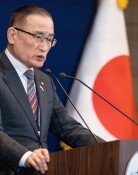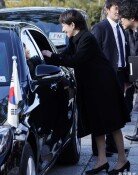Safety is a habit
A new CEO of Alcore, Inc. appeared to investors who had high expectations at a luxurious hotel in Manhattan, New York, in December 1987. He said, First of all, I would like to point out the emergency exit of this room. In case of fire or an emergency, you need to walk through that door and escape the building. Then, he pointed out the door behind the ballroom. Sudden silence gripped the room.
Ill talk about employees safety to you. A significant number of employees get injured and lose working days at Alcore every year. Ill make Alcore one of the safest companies in the United States. Investors who expected the highest investment return sold off the companys shares as soon as the event was over.
A year later, Alcore earned the highest profit since its foundation. Its annual net earnings jumped five times, and its market capitalization rose to 27 billion dollars. He was Paul ONeill, a former Treasury Secretary of the George W. Bush administration. His plan to make zero accidents was not something of a hippie or a socialist. His search for a problem in the production process led to the improvement in the process and quality. When he granted the authorities to suspend the production line to those who work on the site, the organizational culture changed and productivity increased. He knew that safety is the result of a key habit.
Morgan Stanley, one of the worlds leading financial companies, used to conduct evacuation drills every year for its employees. As a result, all of its employees were safely evacuated after the 9/11 terrorist attack. Morgan Stanley is not an exception. Companies and condos in the United States and Canada often get people engaged in fire drills and emergency evacuation drills.
Kim Soo-eun, a housewife who recently returned to Korea from Canada, shared a story. She said, When an alarm bell rang, I thought there was a fire accident and went down the stairs from the ninth floor with my children. I was puzzled to learn that it was a fire drill. Some neighbors brought a small bag. They leave a bag of important items in the entrance so that they can take it out in case of emergency. Among them was an old couple who could not walk well and they did not seem bothered at all. They rather said to the firefighter, Thank you and went back home. When Kim got used to her life in Canada, she found that some residents do not come down even when the alarm bell rang. They were Korean and Chinese people. If there is a fire drill, some people would complain that the drill is annoying and I am sure that I would be one of them.
Koreans ignorance of safety has become a hot topic again in the wake of the sinking of the ferry Sewol. Koreans are insensitive to safety because they are used to focusing more on results than the course as a result of the countrys fast growth and are overly optimistic about what would happen to them in case of an accident, saying, Ill be an exception. Although the ferry disaster gave a strong warning that this accident could happen to any of us, the problem is that a habit does not change easily.
Safety is regulation to the government, costs to companies, and a habit to the people. The Park Geun-hye administration said regulations are cancers. It could not discern good regulations from bad regulations. Korean companies cut costs for safety when their profits decrease. Many companies outsourced safety, maintenance, and security functions to save costs. The leakage of personal information showed how Korean companies are indifferent to safety in computers. The most difficult thing, however, is to change peoples practice. Aristotle said, We are what we repeatedly do. It is doubtful whether Koreans who have ignored costs and time for safety for their lifetime can change their habit easily.






![[사설]참 구차한 김병기 전 원내대표](https://dimg.donga.com/c/138/175/90/1/wps/NEWS/IMAGE/2026/01/13/133151454.1.jpg)
